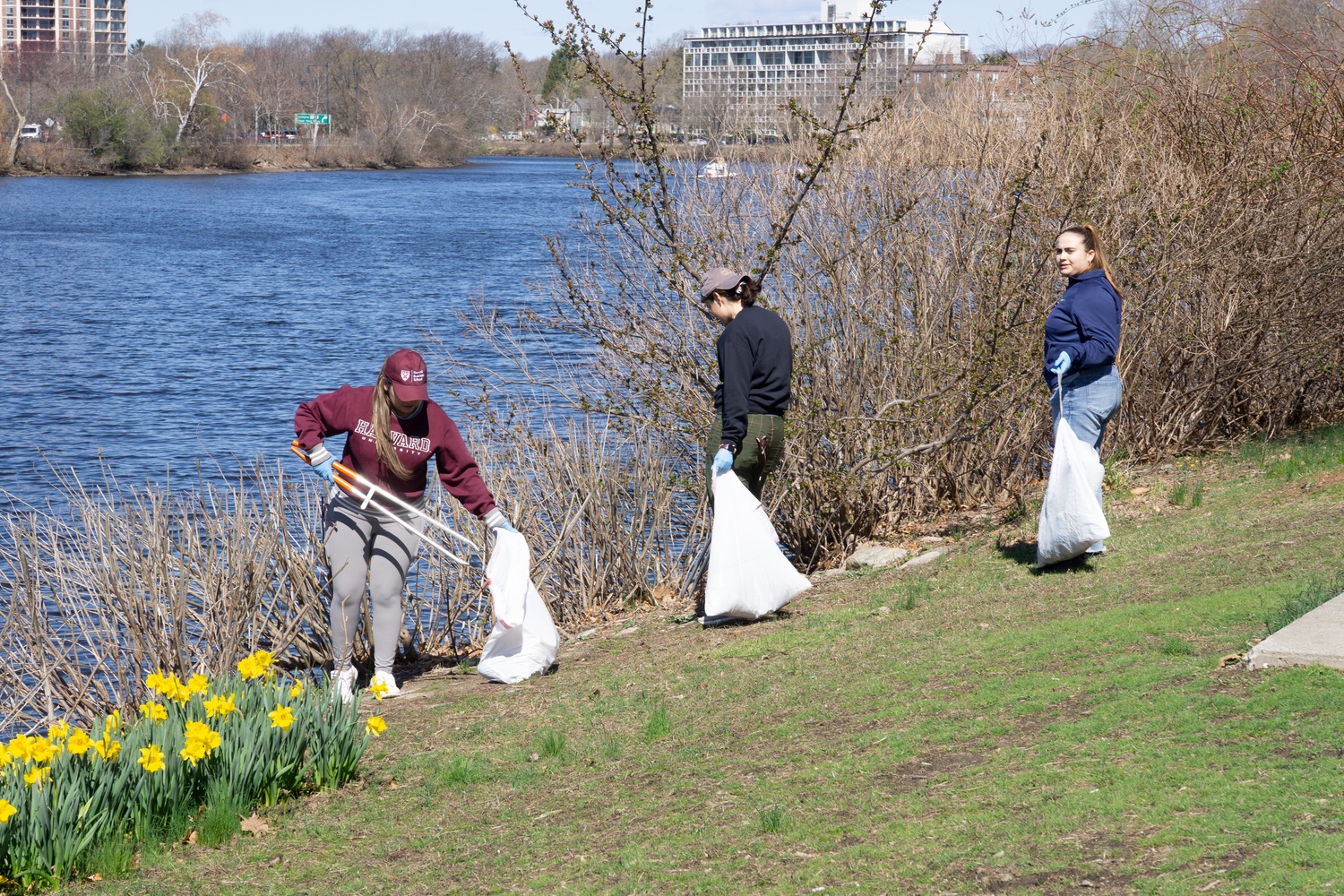
News
Summers Will Not Finish Semester of Teaching as Harvard Investigates Epstein Ties

News
Harvard College Students Report Favoring Divestment from Israel in HUA Survey

News
‘He Should Resign’: Harvard Undergrads Take Hard Line Against Summers Over Epstein Scandal

News
Harvard To Launch New Investigation Into Epstein’s Ties to Summers, Other University Affiliates

News
Harvard Students To Vote on Divestment From Israel in Inaugural HUA Election Survey
88 Pounds of Trash Collected at Eighth Annual Charles River Clean-Up

Harvard students and affiliates collected 88 pounds of trash, microplastics, and debris at the eighth annual Charles River Clean-Up on Thursday.
The event held to mark Earth Day was co-hosted by the Harvard Kennedy School and Charles River Conservancy. The clean-up, organized by HKS staff, also featured Harvard Business School, the Harvard Graduate School of Education, Harvard Recycling, and the Office for Sustainability.
“Our goals are small but impactful,” HKS Senior Sustainability Manager Emily Flynn-Pesquera wrote in an email to The Crimson. “This one clean-up event will remove more than 50 bags of trash from the river between HKS and HBS.”
“Cambridge and Allston are home to Harvard, so we want to be good stewards of the land and waters that our nearly 50,000 community members and neighbors inhabit throughout the year,” she added.
Sasha Vallieres, Stewardship and Volunteer Program Manager at the Charles River Conservancy and one of the clean-up organizers, emphasized the importance of clean-ups in changing misconceptions about climate stewardship.
“People are like ‘Oh, the parks are so clean.’ They’re expecting there to be abandoned cars, or be totally trashed. But a lot of what people are going to find is what I call micro trash,” she said. “This styrofoam cup will outlive you, it will outlive your grandchildren, it will outlive your grandchildren’s grandchildren.”
Tessa Varvares, senior program coordinator for the HKS Belfer Center Arctic Initiative, attended the event and said the clean-up built upon her understanding of how habitual things contribute to the health of the watershed.
“Cleaning up little bits of trash along the waterway doesn’t seem like much, but getting outside and doing your part to just clean up a little bit — if people continuously contribute a little bit, it does go a long way,” Varvares said.
As Massachusetts looks to renew its MS4 stormwater regulations, Max Rome, a Senior Stormwater Program Manager at the Charles River Watershed Association, underscored the importance of community engagement in supporting “regulations that are as strong as possible.”
“That’s a really important opportunity for residents to kind of pay attention to what’s happening and push for kind of really ambitious — not just status quo — targets to end sewage discharge and Combined Sewage Overflow into the Charles River,” Rome added.
Vallieres similarly emphasized the importance of local stakeholder efforts in taking better care of the Charles, from demanding more trash cans in parks to reassessing the aesthetic of the landscaping industry which lends itself to overreliance on fertilizers that can contribute to nutrient pollution.
“I think of Harvard, and are there landscaping choices that could be made that could help to mitigate runoff or that could increase habitat or ecological value,” she said.
“You think globally, but you act locally,” clean-up participant Cassidy Kasper said. “Just by bringing attention to local environment sustainability initiatives really gives people the attention that it needs, and you can see how you're helping and what you can do to help.”
Julia McNicholas, who works at the HKS Ash Center, said participating in the clean-up was an opportunity to not only support the health of the Charles River but also to reflect on how residents show up in the world environmentally.
“I think doing events like this is a great way to ground yourself in the world, in like an environmental sense, and to remind you as an individual that we’re part and we’re contributing to a much greater system,” McNicholas said.
—Staff writer Ava H. Rem can be reached at ava.rem@thecrimson.com. Follow her on X @avar3m.
—Staff writer Iris J. Xue can be reached at iris.xue@thecrimson.com. Follow her on X @iris_j_xue.
Want to keep up with breaking news? Subscribe to our email newsletter.
